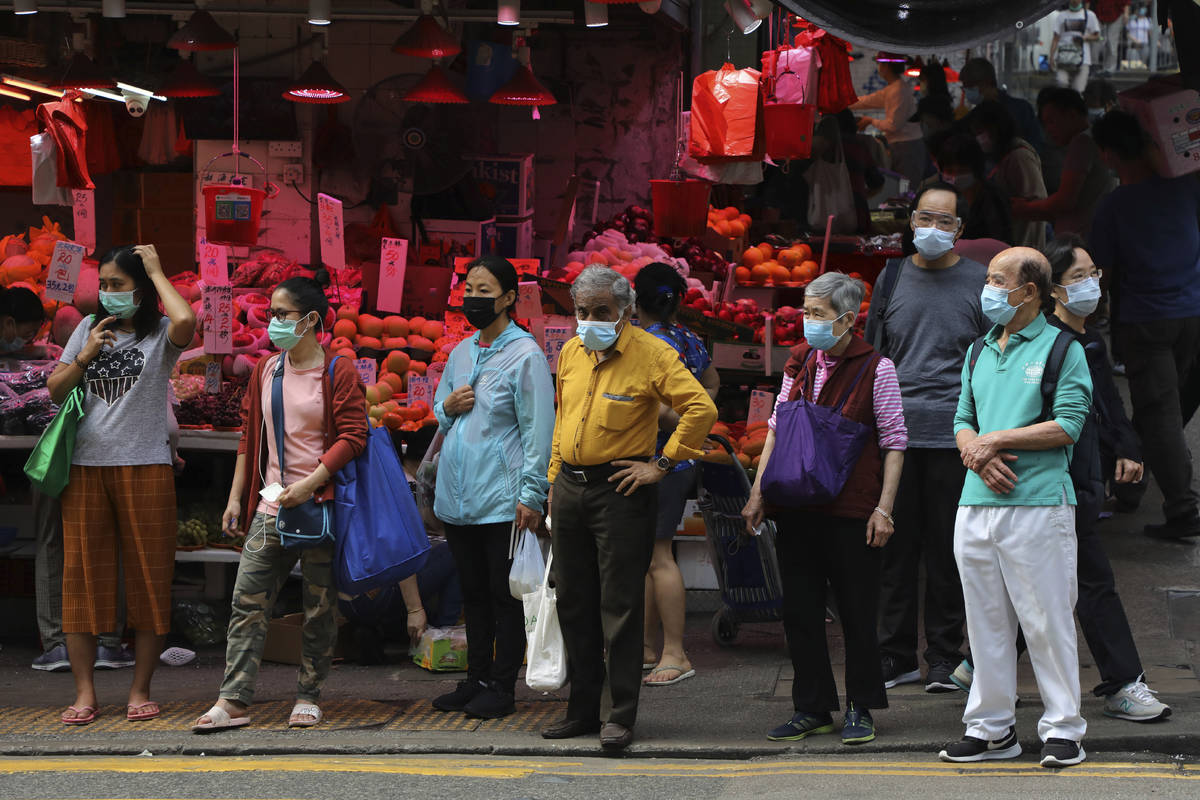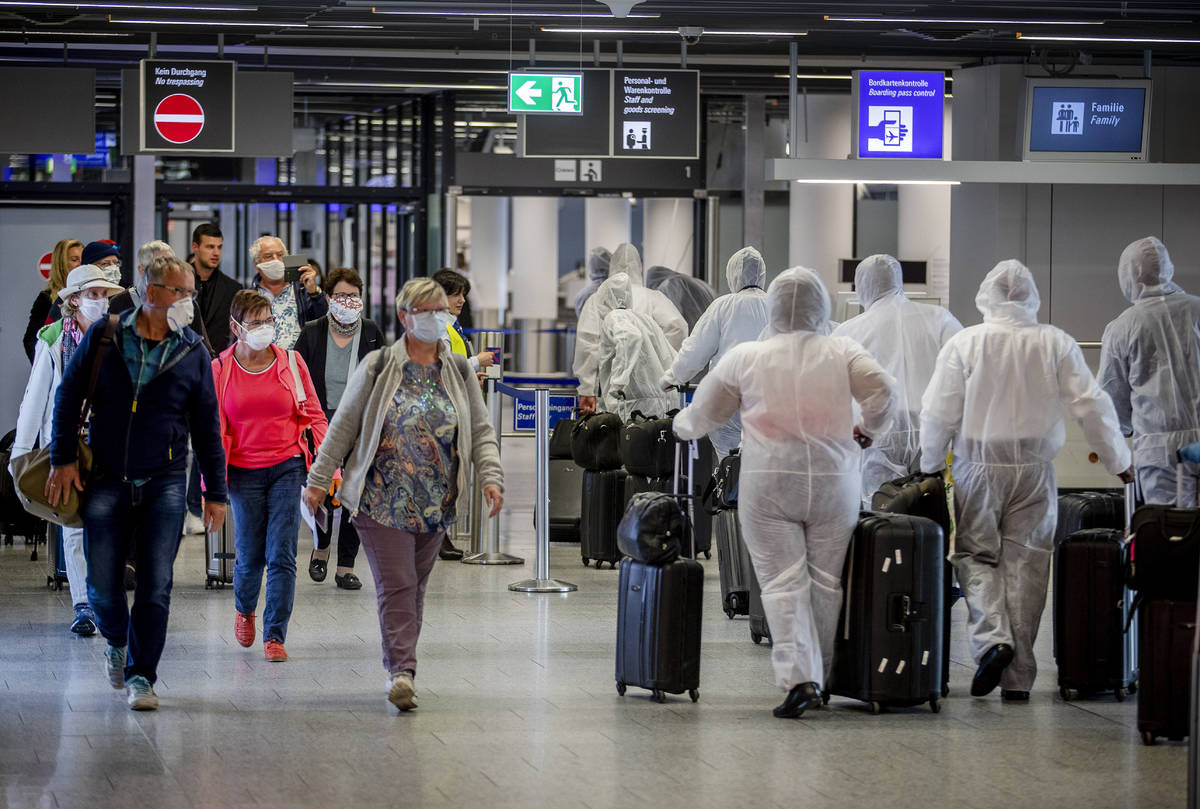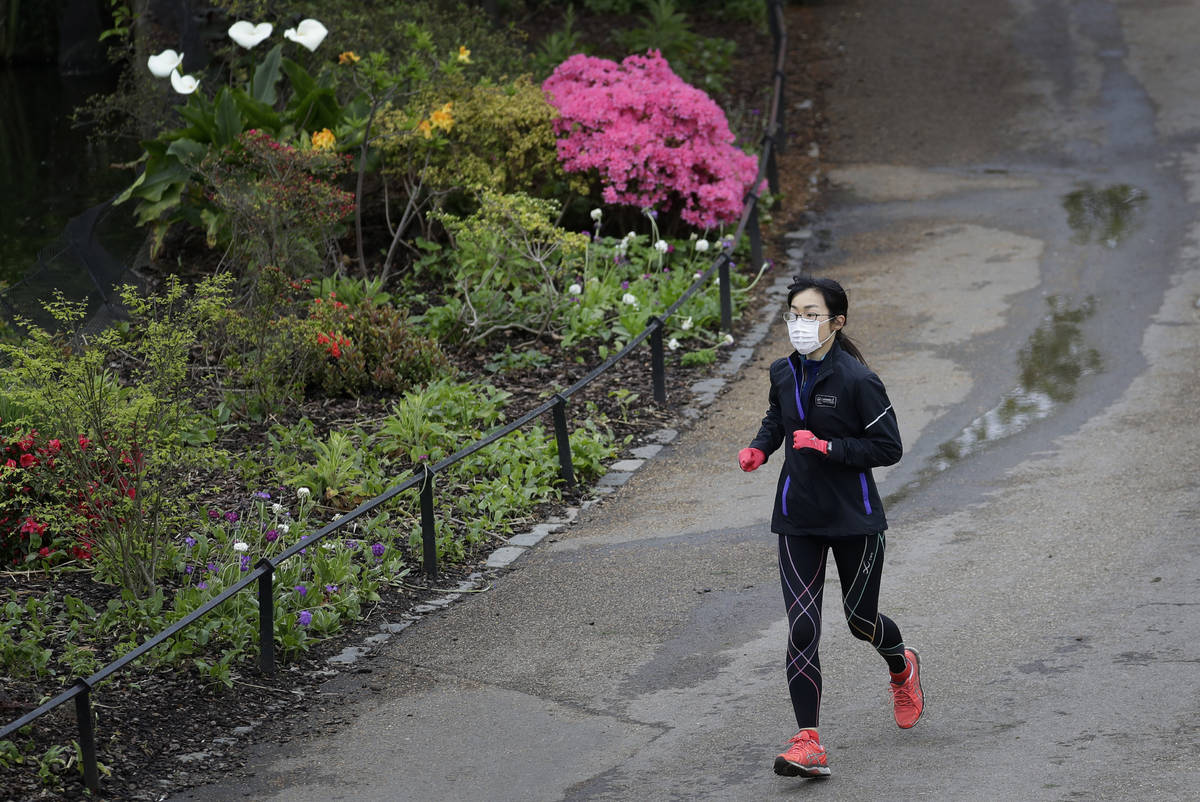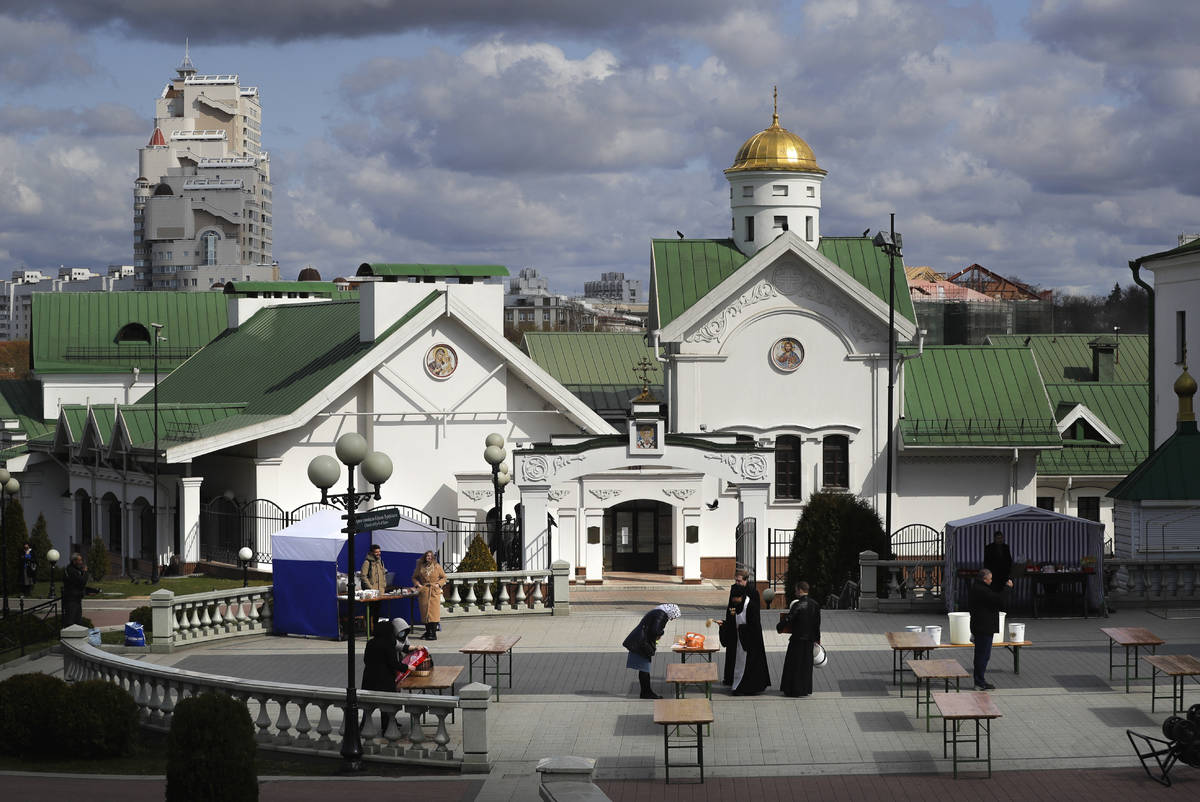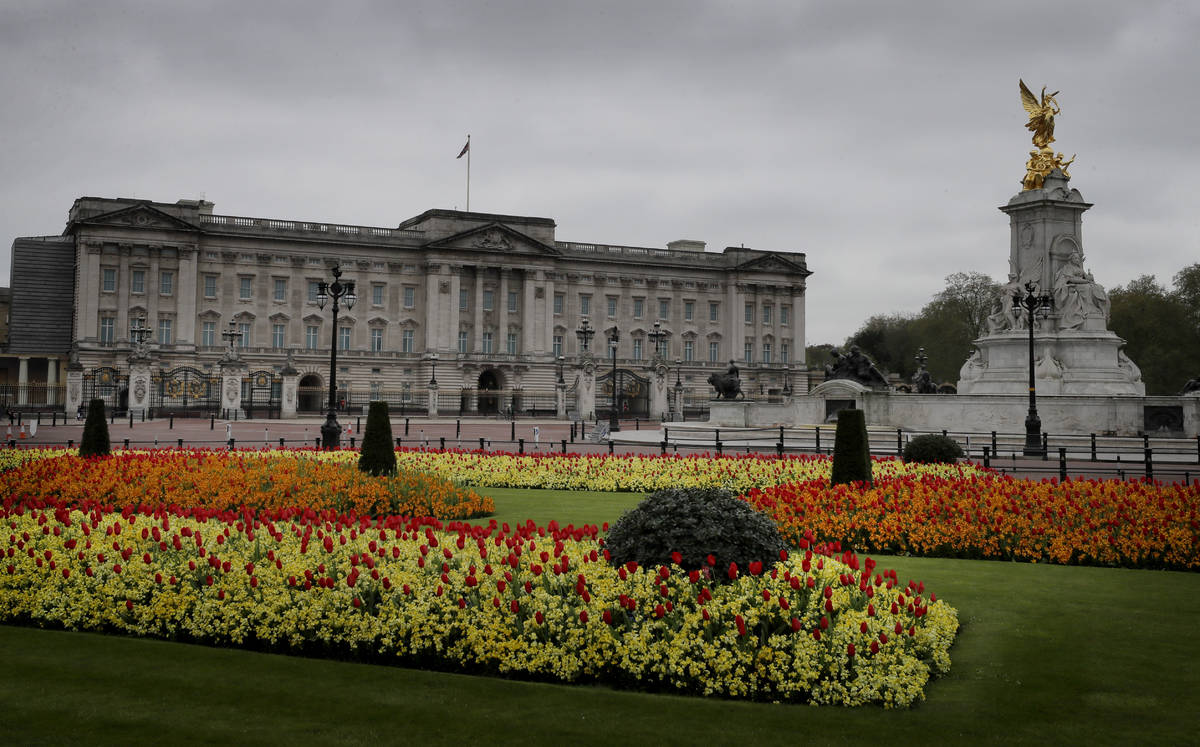Nations juggle safety measures against easing economic hardship
BERLIN — Facing rising unemployment and with many of their citizens struggling to make ends meet, governments around the world are wrestling with when and how to ease the restrictions designed to control the coronavirus pandemic.
Mandatory lockdowns to stop the spread of the new virus, which has so far infected more than 2.2 million people and for which there is no vaccine, have brought widespread hardship.
In a joint statement Saturday, a group of 13 countries including Canada, Brazil, Italy and Germany called for global cooperation to lessen the economic impact of the pandemic.
“It is vital that we work together to save lives and livelihoods,” they said.
The group, which also includes Britain, France Indonesia, Mexico, Morocco, Peru, South Korea, Singapore and Turkey, said it was committed to “work with all countries to coordinate on public health, travel, trade, economic and financial measures in order to minimize disruptions and recover stronger.”
This includes maintaining “air, land and marine transportation links” to ensure the continued flow of goods including medical equipment and aid, and the return home of travelers, they said.
Political tones in US decisions
In the United States, the debate has taken on partisan tones ahead of this fall’s presidential elections. Republican President Donald Trump urged supporters to “liberate” three states led by Democratic governors, tweeting the kind of rhetoric some have used to demand an end to stay-at-home orders that have thrown millions out of work.
There have been tentative signs that measures to curb the outbreak are working, with the rate of new infections slowing across Europe in response to the lockdowns there.
In France and Spain, some field hospitals were starting to be dismantled, while Germany said the number of people infected by each person with COVID-19 fell below one for the first time this week.
Still, most governments and public health officials remain cautious about relaxing the shutdowns, despite the mounting economic toll.
“It’s wrong, sensationally wrong to communicate that there is a kind of conflict with health and safety on one side and economic resumption,” said Domenico Arcuri, Italy’s extraordinary commissioner for the coronavirus emergency.
Arcuri told reporters Saturday that “without health, the (economic) revival will disappear in the batting of an eyelash.”
The Italian government’s decree, shutting down nonessential industries and businesses, runs through May 3. Health experts are advising that any easing must be gradual in the country that’s seen the most deaths so far in Europe, with nearly 23,000 fatalities and over 172,000 known cases.
Some Asian nations that until recently appeared to have the outbreak under control, including Singapore and Japan, reported a fresh surge in cases Saturday.
Japan cases top 10K
Japan’s total case number rose above 10,000 on Saturday. Prime Minister Shinzo Abe expressed concern Friday that people were not observing social distancing and announced a 100,000-yen ($930) cash handout to each resident as an incentive to stay home.
Iran, hard hit by the virus and international sanctions, allowed some businesses in the capital and nearby towns to re-open Saturday after weeks of lockdown. Gyms, restaurants, shopping malls and Tehran’s grand bazaar will remain closed.
In Africa, one of the world’s poorest regions, the pandemic is only just getting underway. The continent has now recorded more than 1,000 coronavirus deaths, among them the Nigerian president’s chief of staff.
Top leaders of China’s ruling Communist Party called for deficit spending and a more flexible monetary policy after the economy shrank 6.8% in the first three months of the year.
France’s lower house of parliament approved an emergency budget overnight that takes into account the government’s 110 billion-euro ($120 billion) plan to save the economy from virus-related collapse. The government has warned that France’s economy, one of the world’s biggest, could shrink 8% this year and see its worst recession since World War II.
South Korea’s health minister, Kim Gang-lip, said Saturday that new guidelines could be issued soon that officials have said would allow people to engage in “certain levels of economic and social activity.”
The East Asian country was among the 13 nations to issue the joint statement on protecting global trade. The declaration also stressed “the importance and critical role of the scientific community in providing guidance to governments.”
While most of those sickened by the virus recover, the outbreak has killed at least 154,000 people worldwide, according to a Johns Hopkins University tally based on figures supplied by government health authorities around the globe.
The number all but certainly underestimates the actual toll. Authorities said that almost everywhere, thousands have died with COVID-19 symptoms — many in nursing homes — without being tested for the virus, and have thus gone uncounted. In Britain, with an official count of about 14,600 dead, the country’s statistics agency said the actual number could be around 15% higher.
China revises death toll up 40%
China on Saturday reported a nearly 40% increase in its death toll to 4,632 victims, reflecting a major upward revision made the previous day by authorities in Wuhan, the nation’s hardest-hit city.
An Associated Press tally from news media reports and state health departments indicates 6,912 U.S. deaths have been linked to coronavirus outbreaks in nursing homes and long-term care facilities. The U.S. government has not been releasing a count.
700K cases, 35K deaths in US
The official death toll in the U.S. has topped 35,000, with more than 700,000 confirmed infections.
Protesters fed up with the economy-strangling restrictions have taken to the streets in several U.S. states. In Idaho, where the governor is a Republican, scores of protesters not wearing masks stood shoulder-to-shoulder Friday. Some carried signs claiming the coronavirus is a hoax.
“LIBERATE MINNESOTA!” “LIBERATE MICHIGAN!” “LIBERATE VIRGINIA, ” Trump said in a tweet-storm in which he also lashed out at New York Gov. Andrew Cuomo, a Democrat, for criticizing the federal response. Cuomo “should spend more time ‘doing’ and less time ‘complaining,’” the president said.
Texas and Florida, which both have Republican governors, took first steps toward easing restrictions.
Texas Gov. Greg Abbott said stores could begin selling curbside, nonessential surgery could resume and state parks could reopen. In Florida, Gov. Ron DeSantis said municipalities could reopen beaches and parks if they could do so safely.



